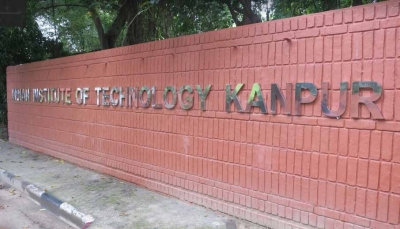New Delhi, Dec 4 : A recently concluded study underscores how coal communities perceive ‘just transition’ and what they expect after coal mines and plant closures, an eventuality as India will transition to clean energy sources to meet its net-zero goals.
The Just Transition Research Centre of the Indian Institute of Technology Kanpur (JTRC IIT-K) released a new report titled “What is Just Transition? Perception of Grassroots Stakeholders” at a virtual discussion hosted by Climate Trends on G20 Under India’s Presidency and Energy Transition.
The perception scale developed by IIT-Kanpur, the first of its kind, looked at three key dimensions of just transition — coal downside, environment protection and community livelihood.
The individual and collective perceptions of just transition have a wide range according to the type of dependence, gender, coal units and relationships with trade unions.
However, the overall perception of just transition related dimensions is stronger among the direct coal dependents than indirect ones.Moreover, the perception of the coal mine workers was higher for the livelihood dimension than the coal downside.
On the other hand, people from the power plants exhibited higher perception for the coal downside and therefore agree with coal phase down.
Pradip Swarnakar, founder JTRC, emphasised that “the success of just transition requires more and more interaction with grassroots stakeholders.
“The top-down solution will be ineffective because we are talking about just transition, not energy transition.People’s perception is influenced by their expectations, and if we do not consider this, we may have to face resistance from a large number of people, and then the policy change will be difficult.To understand people’s perception, a scientific measurement scale is of utmost importance.”
The study looks at a bottom-up approach and makes a strong case for putting people and communities at the centre while implementing just transition in India.
Around 46 per cent of the 900 individuals residing close to coal mines and power plants of Uttar Pradesh and West Bengal interviewed for the study fell into the direct dependent category.
Indirect dependents including daily-wage labourers, agriculture workers, local shopkeepers and unemployed job seekers were also interviewed.
Highlighting the significance of the report, the prominent just transition specialist Sandeep Pai, Senior Research Lead, Energy Security and Climate Change Programme, Centre for Strategic and International Studies, said, “Policymakers grappling with the concept of Just Transition and require more evidence from the ground for sound policymaking.
“They are looking for research that captures people’s voices living in the vicinity of coal mines and power plants.JTRC’s new report does a fine job of capturing voices and perceptions of under-represented people and communities in coal dependent areas.It shows the heterogeneity of opinions and values of key stakeholders of what India’s just transition should focus on.”
vg/uk/
#Peoples #critical #energy #Kanpur #Delhi #Delhi #New Delhi #Uttar Pradesh #Kanpur #West Bengal
.






